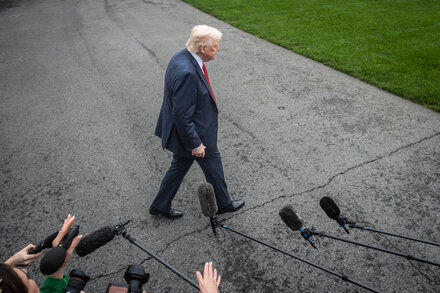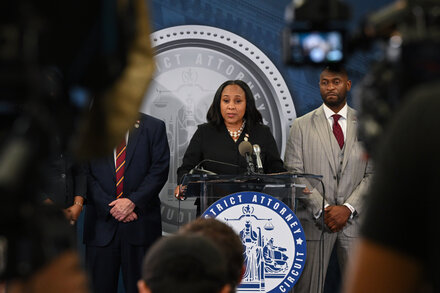Former President Donald J. Trump has announced a proposal to institute a $100,000 fee for skilled worker visas if he is re-elected, a move he stated would prioritize American workers and generate substantial revenue.
The announcement, made during a recent campaign event, targets the U.S. immigration system, particularly programs like the H-1B visa, which allows U.S. employers to temporarily employ foreign workers in specialty occupations. Current fees for H-1B visas range, but are significantly lower than the proposed $100,000, typically involving application, fraud prevention, and public law fees that can sum to a few thousand dollars per application.
Trump argued that the hefty fee would encourage companies to hire American citizens over foreign workers and ensure that foreign labor only supplements the workforce when absolutely necessary. He emphasized a “America First” approach to employment and economic policy.
“We are going to put America first, and that means American jobs first,” Trump stated. “If you want to bring in a skilled worker from another country, that’s fine, but you’re going to pay a premium. A big premium. One hundred thousand dollars. That money will stay right here, in our country, for our people, and it will make companies think twice about bypassing qualified American workers.”
The proposal has quickly drawn strong reactions from various sectors. Technology companies and other industries heavily reliant on skilled foreign labor, such as healthcare and scientific research, are expected to voice significant concerns. Critics argue that such a prohibitive fee could cripple their ability to fill critical roles, stifle innovation, and drive jobs overseas.
Immigration advocates have also expressed alarm, suggesting the fee could effectively shut down avenues for highly qualified individuals to contribute to the U.S. economy and society. They point to the existing challenges in attracting and retaining top global talent.
Conversely, some labor unions and proponents of stricter immigration controls have lauded the idea, asserting it would protect domestic wages and job opportunities for U.S. citizens and legal residents. They believe it aligns with efforts to reform the immigration system to benefit American workers directly.
Economists are divided on the potential impact. While some acknowledge the potential for increased revenue, others warn of the long-term economic consequences of limiting access to specialized skills and the potential for a brain drain if talented individuals choose other countries with more welcoming visa policies.
The implementation of such a fee would likely require significant legislative action or executive orders, potentially facing legal challenges. The proposal signals a continuation of Trump’s tough stance on immigration and his focus on economic nationalism should he return to the White House.
Source: Read the original article here.





